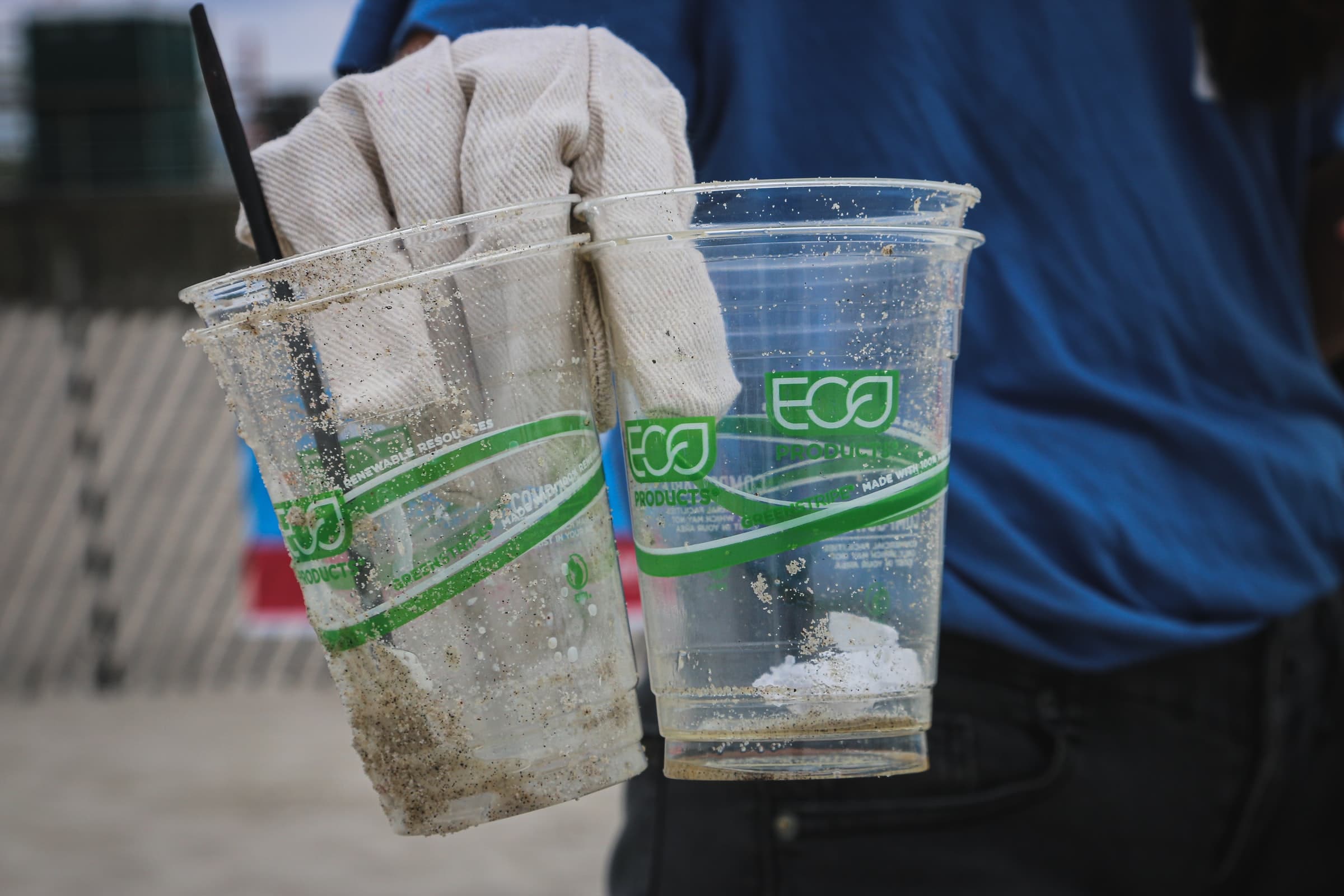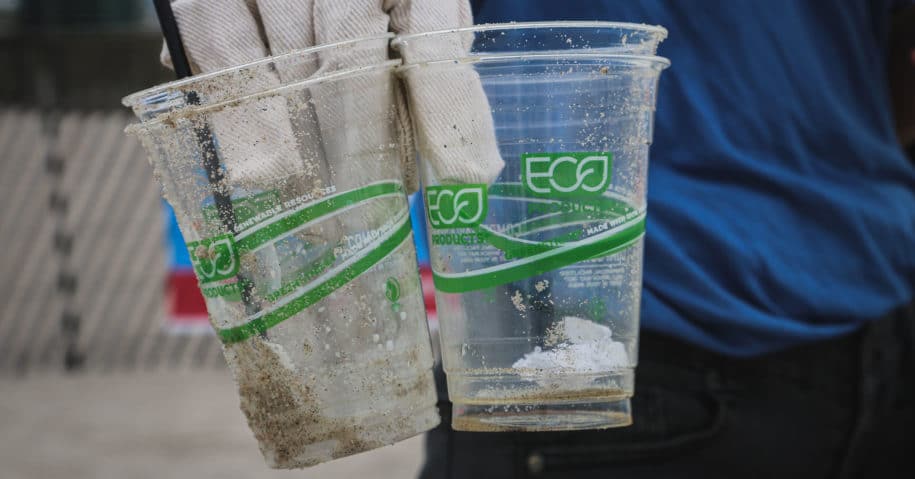The Pitfalls of Greenwashing and How to Avoid Them

This is the fourth in an ongoing series of blogs exploring the meaning, implementation, function and future of CSR.
In CSR implementation, authenticity is king. According to researchers Daina Mazutis and Natalie Slawinski, “through CSR Authenticity, consumer mistrust is reduced. It encompasses the development of concepts capable of explaining the characteristics of Corporate Social Responsibilities, thereby, leading to stakeholders’ genuine perceptions.” For many modern consumers to purchase from a brand, they must trust the brand’s commitment to the causes they publicly support.
This is especially true of companies vowing to be environmentally conscious, with 81% of consumers “strongly feel[ing] that companies should help improve the environment.” After decades of watching governmental bodies do little to mitigate the severity of climate change, many individuals look to the private sector to create large-scale strides in sustainability. And this can already be seen in the buying habits of consumers in the 21st century. In a 2020 study performed by IBM, over two-thirds of North Americans were found to prefer to buy from eco-friendly, sustainable brands.
However, companies should not see this market trend as an opportunity for marketing. Being an environmentally conscious company is more than just slapping a “green” sticker on packages and making half-hearted social media posts. In fact, most consumers feel directly misled by green and sustainable marketing, and take note of offenders. This practice is dubbed “greenwashing,” essentially putting up a facade of sustainability to entice customers.
With April 22nd being Earth Day, many companies will be tempted to create social campaigns promoting the importance of climate action while taking very little themselves. But this only weakens brand trust and sends customers looking for authentic alternatives. Instead, use the entire month of April (Earth Month) as a turning point for long lasting, actionable environmental commitments, showing your customers you mean business about addressing the climate crisis.
Why To Never Greenwash

Greenwashing can manifest in many different ways, but the goal is always the same: marketing one’s brand to seem more eco-friendly than it actually is. For instance, the oil and gas industry spends roughly $195 million annually on climate positive branding. The irony is that these companies are consistently a major force in greenhouse gas emissions, actively using their power to fight carbon taxes and other climate emission regulations. On a macro scale, these practices are greenwashing in action; appealing to the public as a climate-oriented brand, while actively preventing governmental sustainability regulation.
While not every company has the impact or power of oil and gas conglomerates, greenwashing is extremely prevalent. Numerous companies use terms like “green,” “organic” and “sustainable” to purposely mislead customers, painting a public image of an environmentally friendly company and product. Due to the prevalence of the practice, it is quite apparent that the marketing works; especially as a growing portion of consumers will pay more money for environmentally friendly products.
Yet, by greenwashing, companies play a dangerous game. J.P. Leous, director of international corporate relations at the World Resources Institute, had very stern words against greenwashing for corporate sustainability professionals attending a GreenBiz conference in Arizona; “Within two years, if your company’s climate policies aren’t aligned with your corporate sustainability targets on climate, you’re going to be seen as two-faced.” As consumers crave green products and companies, they will quickly become savvier toward greenwashing, and make their observations known publicly.
With social media channels and tools like Ecolabel Index explaining the context of green labels on products, consumers can quickly analyze companies’ claims of sustainability, and spread their findings far and wide; and the same is true of employees. More so than ever, potential employees want to work for sustainable brands, with 76% of millennials saying they “consider a company’s social and environmental commitments before deciding where to work.” If a brand is known for publicly greenwashing, this drives customers and high performing employees away, stifling the company’s ability to grow or retain a quality workforce.
In short, greenwashing may create short term gains in sales and investment, yet these successes will be built on shaky ground. Greenwashing greatly weakens public trust and brand value, labeling a company as untrustworthy and insincere. As the 2030’s slowly approach, this type of brand image will only become more destructive.
How to Avoid Greenwashing
Trust is extremely important to how consumers shop, with 82% of them reporting they would continue shopping with a brand they trust, even if a direct competitor becomes more popular and trendy. However, building that trust comes from years of authenticity and transparency, which are both antithetical to greenwashing. With this in mind, the most important thing a brand can do to not greenwash is to openly and clearly commit to sustainable practices, and publicly report them.

In terms of sustainability, full transparency is where most companies fail. “About 90% of companies in the S&P 500 publish sustainability reports, but only 16% have any reference to ESG factors in their filings, creating a mismatch between what is disclosed in regulatory filings and what companies voluntarily publish.”
Most companies have some form of outward facing sustainability, but these are greenwashed and selective of the information which is divulged. With complete transparency, companies are showing the world the whole truth, letting the public see everything a company is doing to address climate change. While this allows the public to see a company’s corporate social responsibility shortcomings, this simultaneously builds trust among consumers and employees. Instead of presenting a manicured image of perfection, transparent CSR reporting leaves companies open to criticism, yet lets them prove how they are making advancements to better meet their goals as time goes on.
While CEO letters and public reports are the standard, they are not as user-friendly to individual employees and consumers. Currently, there are very few ways for companies to display their sustainability goals in a public forum, which displays specific courses of action they are taking, partnership opportunities, or individual ways employees and customers can assist in combating climate change. However, Impactree is built to do just this.
Engaging Customers and Employees on Sustainability
Impactree offers companies and organizations the unique opportunity to host and curate actions which reflect and forward their sustainability goals. In one location, companies can show their communities of customers and employees how they as a company are making the world a better place, creating custom actions to showcase current campaigns and partnerships.
While enabling brands to display their large scale goals and partners, Impactree also gives companies tools to enable their communities to take climate action, while adding to the collective impact of the company. Whether it is simple information on what climate change is, tools to calculate their own ecological footprint, or other personal ways to live a more sustainable life, Impactree has dozens of actions which make addressing climate change fun and measurable.
With Earth Month coming up in April, now is the perfect time to engage your employees on the importance of sustainability. A year into Covid, many companies have had numerous Zoom Happy Hours and events; so why not use this time as an opportunity to create an impact? Impactree’s new Action Parties are short virtual events where employees and/or customers complete as many actions as possible on the Impactree platform. These build a sense of community and collective action, and give employees and customers a way to make a personal change in the environment.
The Future Will Not Be Greenwashed
Over the last two decades, public concern over climate change has risen sharply, with almost two thirds of Americans believing the environment should be the top priority for the President and Congress. Climate change is rapidly becoming more important to a larger percentage of Americans, and companies must adapt to ever-increasing sustainability expectations.
While there is strong marketing potential in being a “green” brand, the ramifications of greenwashing far outweigh the short term gains. Especially in the age of social media, consumers and employees want measurable action and authentic commitments to sustainability, not lip service and green stickers.
The takeaway from greenwashing is a simple one which is important for all aspects of business: customers do not like being misled. This Earth Month, reflect on your company’s public CSR and sustainability goals, contrasting them against internal goals and initiatives. The more these two lenses overlap, the more authentic and transparent your company is. Yet if they do not, now is a perfect time to make a change.
Next time we will be looking at CSR in a post-Covid world, and what must change as businesses open back up.


